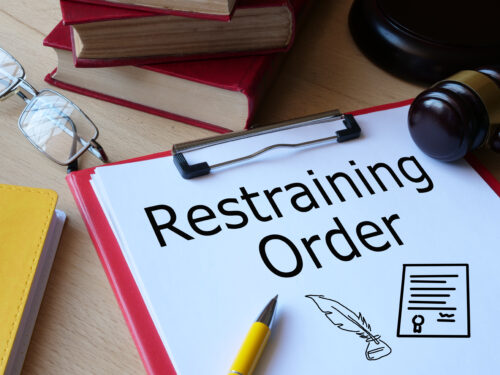
In New York, violating a restraining order is a serious offense, carrying significant penalties. These orders are put in place to safeguard individuals from harassment, threats, or abuse; thus, any violation is seen as a direct challenge to the court’s authority. Please continue reading as we explore common violations, their consequences, and the importance of working with our experienced Nassau County Criminal Defense Attorneys to protect your interests.
What is a Restraining Order?
A restraining order, formally known as a protective order, is a legal document issued by a court to prevent an individual from engaging in harmful conduct towards another. These orders are frequently sought in situations involving domestic violence, harassment, stalking, or abuse.
Orders of protection establish specific boundaries, which can include prohibiting contact, mandating a certain distance between individuals, or requiring the surrender of firearms. They may also necessitate the respondent vacate the shared residence or adhere to specific custody arrangements. Non-compliance with these stipulations carries severe legal ramifications.
Ultimately, these orders are designed to protect the well-being of the petitioner and to clearly define boundaries. For an order to be legally binding, it must be properly served on the respondent. If you are subject to an order of protection, it’s crucial to understand its terms and to comply fully to prevent further legal complications.
What Consequences Can I Face for Violating an Order of Protection in NY?
If a restraining order has been issued against you in New York, imperative to understand the potential repercussions of an alleged violation. The severity of the penalties you face depends on whether the violation involved violence, threats, or repeated violations. A violation can generally lead to criminal charges for Criminal Contempt. This may result in misdemeanor or felony charges, depending on the unique circumstances.
Criminal Contempt in the Second Degree is classified as a Class A misdemeanor, which is punishable by up to one year in jail and a fine of up to $1,000. Criminal Contempt in the First Degree is classified as a Class E felony, which is punishable by up to four years in prison, along with a fine of up to $5,000.
The most serious charge you can face for violating a protective order is aggravated Criminal Contempt. This is a Class D felony, which carries up to seven years in prison and a fine of up to $5,000. It’s important to note that a violation of a protective order can negatively affect your parental rights, potentially leading to supervised visits or even the loss of your custody and visitation rights.
If you have been accused of violating a protective order, it’s crucial to consult with an attorney. At KCS Law, we recognize the difficulties you face and are committed to exploring every possible option to achieve the most favorable outcome. Connect with our firm today for assistance.